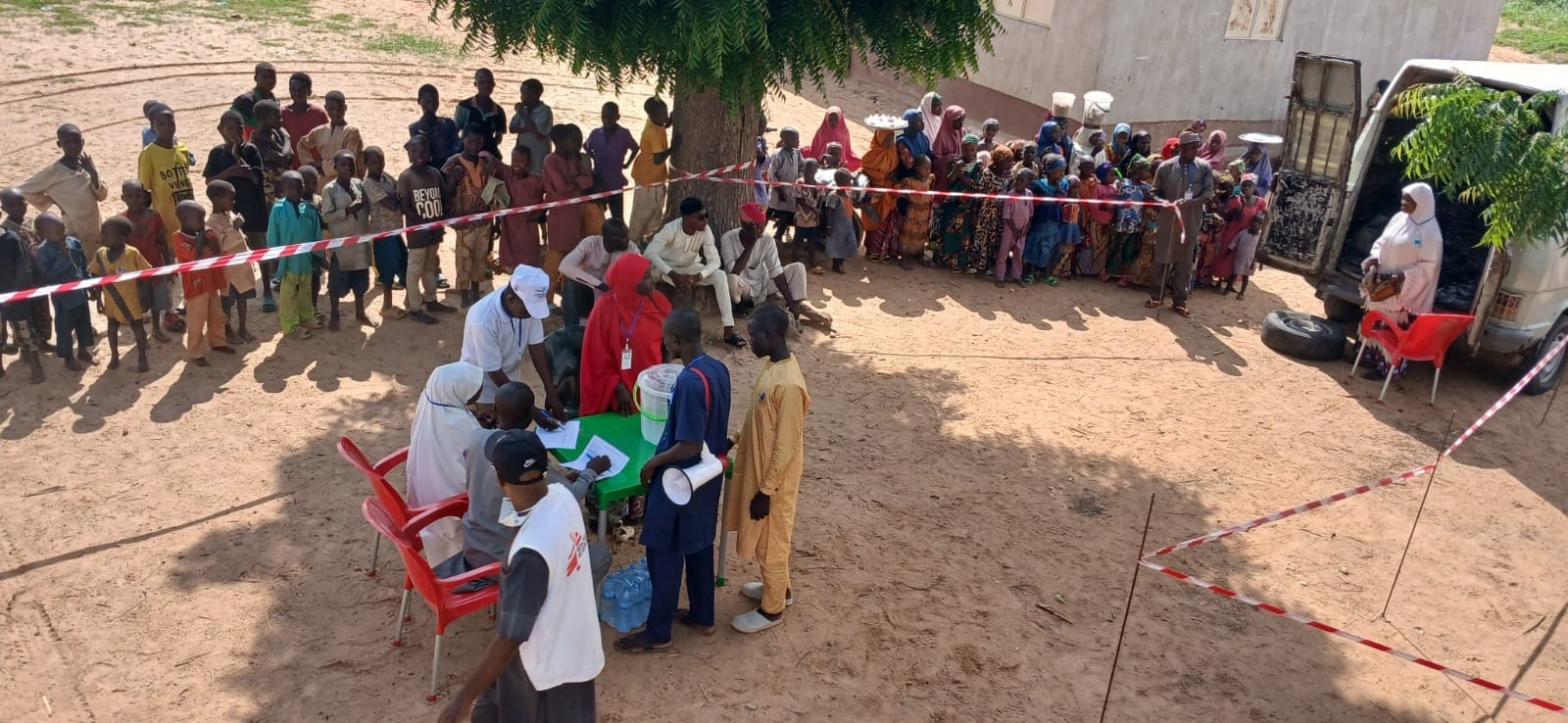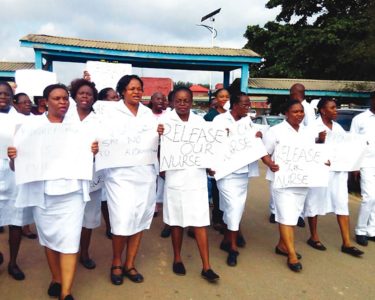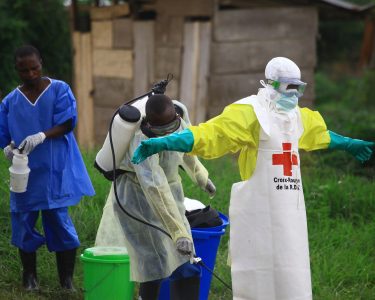Malnutrition in northern Nigeria
Crisis deepens amid aid cuts and insecurity
Summary
- Over 650 children have died from severe acute malnutrition in Katsina State within the first six months of 2025
- Médecins Sans Frontières (MSF) reports treating nearly 70,000 malnourished children in Katsina alone during this period, with a significant surge in severe cases
- The crisis is exacerbated by deep cuts in foreign aid, economic hardships, pervasive insecurity, and a failing healthcare system
- MSF calls for urgent international intervention, including restored funding and increased food and medical support, as the current humanitarian response is insufficient
London, UK – A severe humanitarian crisis is unfolding in northern Nigeria, with Médecins Sans Frontières (MSF), also known as Doctors Without Borders, reporting that at least 652 children have died from severe acute malnutrition in Katsina State alone in the first half of 2025. These tragic deaths occurred in MSF facilities, largely due to delays in accessing timely medical care for critically ill children.
The scale of the crisis is profound, with MSF treating nearly 70,000 malnourished children in Katsina during the same period, almost 10,000 of whom required hospitalisation.
Across northern Nigeria, the organisation has provided care for close to 100,000 children in 2025, primarily in the Northwest region, encompassing Katsina, Sokoto, Kebbi, and Zamfara states.
Alarmingly, cases of nutritional oedema, the most severe form of malnutrition, have surged by 208% in Katsina compared to the same period in 2024, while Kebbi State has seen a 74.1% rise in admissions of malnourished children to MSF facilities.
The crisis extends beyond children, with a screening of 750 mothers at MSF centres revealing that over 50% were acutely malnourished, indicating widespread food insecurity affecting entire families.
Several interconnected factors have converged to create this catastrophic situation. Foremost among them are significant cuts in foreign aid. In July 2025, U.S. President Donald Trump signed legislation reducing foreign aid by $9 billion, with $8 billion directly impacting overseas assistance programmes.
The subsequent closure of the U.S. Agency for International Development (USAID) on 1st July 2025, after 63 years, has had a profound effect, particularly in northeastern Nigeria. Adding to this, the World Food Programme (WFP) announced it would suspend emergency food and nutrition aid to 1.3 million people in Nigeria’s northeast by the end of July 2025 due to depleted stocks and critical funding shortfalls.
Economic challenges are further compounding the crisis. Soaring living costs and rampant inflation have rendered food unaffordable for many families, despite markets being adequately stocked. A recent food security survey in Kaita, Katsina State, revealed that over 90% of households had already reduced daily meals even before the traditional lean season, which runs from June to August.
According to the Cadre Harmonisé report, a staggering 30.6 million people across 26 Nigerian states are projected to face acute food and nutrition insecurity during the 2025 lean season, a population larger than that of Australia.
Pervasive insecurity across northern Nigeria, marked by ongoing insurgencies and banditry, has led to widespread displacement, disrupted farming activities, and severely limited access to essential healthcare and food. This chronic instability forces families to abandon agricultural livelihoods, thereby exacerbating the malnutrition crisis.
The healthcare system itself is on the brink of collapse. There is insufficient infrastructure and a critical shortage of Ready-to-Use Therapeutic Food (RUTF), a vital treatment for severe malnutrition. In Zamfara State, RUTF was unavailable for the first four months of 2025, forcing facilities to restrict treatment to only the most critical cases.
MSF facilities are overwhelmed, with staff resorting to treating patients on mattresses on the floor due to a severe lack of space. Low vaccination coverage has also contributed to outbreaks of diseases like malaria, which further exacerbate malnutrition, while weak primary healthcare systems limit both preventive and curative interventions.
MSF has been at the forefront of the response, treating over 300,000 malnourished children across seven northern states in 2024, a 25% increase from the previous year. In 2025, they have already treated nearly 100,000 children in the Northwest.
The organisation operates 11 stabilisation centres and over 30 outpatient therapeutic programmes. To manage the escalating crisis, MSF has expanded its capacity in Katsina, opening a new outpatient feeding centre in Mashi and an additional inpatient unit in Turai, increasing bed capacity to around 900. In collaboration with local authorities, MSF also launched an emergency distribution of nutritional supplements to 66,000 children in Mashi, Katsina.
Despite these efforts, MSF has highlighted the inadequacy of the overall humanitarian response, with other non-profit organisations also struggling to cope. The organisation has issued urgent calls to Nigerian authorities, international organisations, and donors to scale up both curative and preventive measures, including large-scale food distributions, nutritional supplements, and direct cash transfers to affected families.
Vice President Kashim Shettima has acknowledged malnutrition as a national emergency, noting that nearly 40% of Nigerian children under five are affected, leading to significant physical and cognitive developmental challenges.
In May 2024, the United Nations and Nigerian authorities appealed for $306.4 million to address nutritional needs in Borno, Adamawa, and Yobe states. However, this appeal was deemed insufficient as it excluded other heavily affected regions like Katsina and Kebbi.
While acknowledging the severity of the crisis, Katsina State’s nutrition officer, Abdulhadi Abdulkadir, expressed skepticism regarding MSF’s specific figures, suggesting they might be overstated and unverified by the state, promising to release official data soon. The WFP underscores the wider hunger crisis, reporting that nearly 31 million Nigerians face acute hunger nationwide.
MSF and other stakeholders are urgently recommending immediate food access through distributions or cash transfers, the swift restoration of aid by major donors, and a significant strengthening of healthcare systems, including increased RUTF supplies and enhanced vaccination programmes. They also advocate for long-term solutions addressing underlying causes such as insecurity, poverty, and weak infrastructure through sustained investments and community-based interventions.
Ahmed Aldikhari, MSF’s country representative, has implored the international community to recognise the severity of the crisis, stating, “The true scale of the crisis exceeds all predictions.”
Social media platforms like X reflect growing alarm and frustration, with users directly linking the deaths to aid cuts, some describing it as a “macabre calculus of prioritizing budgets over lives.” There are widespread calls for increased global attention, and the crisis has ignited discussions about the long-term consequences of reduced foreign aid, particularly attributing the situation to recent policy decisions from countries like the U.S.
The escalating malnutrition crisis in northern Nigeria, marked by over 652 child deaths in Katsina alone in the first half of 2025, serves as a stark reminder of the devastating consequences of reduced international aid, pervasive economic hardship, and ongoing insecurity.
While MSF’s tireless efforts are commendable, they are severely strained by overwhelming demand and critically limited resources. The dire situation demands urgent action to restore crucial funding, provide immediate food and medical support, and address systemic issues to prevent further catastrophic loss of life.







